Persuasion
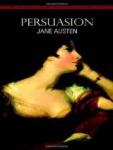
Persuasion is Jane Austen's last completed novel. She began it soon after she had finished Emma, completing it in August 1816. She died, aged 41, in 1817; Persuasion was published in December that year (but dated 1818).More than eight years before the novel opens, Anne Elliot, then a lovely, thoughtful, warm-hearted 19 year old, accepts a proposal of marriage from the handsome young naval officer Frederick Wentworth. He is clever, confident, and ambitious, but poor and with no particular family connections to recommend him. Sir Walter, Anne's fatuous, snobbish father and her equally self-involved older sister Elizabeth are dissatisfied with her choice, maintaining that he is no match for an Elliot of Kellynch Hall, the family estate. Her older friend and mentor, Lady Russell, acting in place of Anne's late mother, persuades her to break the engagement.Now 27 and still unmarried, Anne re-encounters her former love when his sister and brother-in-law, the Crofts, take out a lease on Kellynch. Wentworth is now a captain and wealthy from maritime victories in the Napoleonic wars. However, he has not forgiven Anne for rejecting him. While publicly declaring that he is ready to marry any suitable young woman who catches his fancy, he privately resolves that he is ready to become attached to any appealing young woman except for Anne Elliot.The self-interested machinations of Anne's father, her older sister Elizabeth, Elizabeth's widowed friend Mrs. Clay, and William Elliot (Anne's cousin and her father's heir) constitute important subplots.
Related Books
-
 The Land That Time ForgotEdgar Rice Burroughs
The Land That Time ForgotEdgar Rice Burroughs -
 The Monster MenEdgar Rice Burroughs
The Monster MenEdgar Rice Burroughs -
 The Gods of MarsEdgar Rice Burroughs
The Gods of MarsEdgar Rice Burroughs -
 A Princess of MarsEdgar Rice Burroughs
A Princess of MarsEdgar Rice Burroughs -
 Tarzan the UntamedEdgar Rice Burroughs
Tarzan the UntamedEdgar Rice Burroughs -
 Alice's Adventures in WonderlandLewis Carroll
Alice's Adventures in WonderlandLewis Carroll -
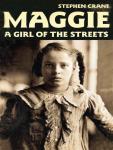 Maggie: A Girl of the StreetsStephen Crane
Maggie: A Girl of the StreetsStephen Crane -
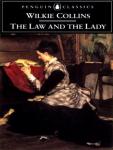 The Law and the LadyWilkie Collins
The Law and the LadyWilkie Collins
Author other works
-
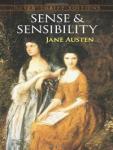
Sense and Sensibility
Jane Austen
Sense and Sensibility is a novel by Jane Austen, and was her first published work when it appeared in 1811 under the pseudonym "A Lady".When Mr. Dashwood dies, his estate, Norland Park, passes directly to his only son John, the child of his first wife. His second wife, Mrs. Dashwood, and their daughters, Elinor, Marianne and Margaret, are left only a small income. On his deathbed, Mr. Dashwood extracts a promise from his son, that he will take care of his half-sisters; however, John's selfish and greedy wife, Fanny, soon persuades him to renege. John and Fanny immediately take up their place as the new owners of Norland, while the Dashwood women are reduced to the position of unwelcome guests. Mrs. Dashwood begins looking for somewhere else to live.In the meantime, Fanny's brother, Edward Ferrars, a pleasant, unassuming, intelligent but reserved young man, visits Norland and soon forms an attachment with Elinor. Fanny disapproves the match and offends Mrs. Dashwood with the implication that Elinor is motivated by money rather than love. Mrs. Dashwood indignantly speeds her search for a new home.Mrs. Dashwood moves her family to Barton Cottage in Devonshire, near the home of her cousin, Sir John Middleton. Their new home lacks many of the conveniences that they have been used to, however they are warmly received by Sir John, and welcomed into the local society, meeting his wife, Lady Middleton, his mother-in-law, Mrs. Jennings and his friend, the grave, quiet and gentlemanly Colonel Brandon. It soon becomes apparent that Colonel Brandon is attracted to Marianne, and Mrs. Jennings teases them about it. Marianne is not pleased as she considers Colonel Brandon, at thirty-five, to be an old bachelor incapable of falling in love, or inspiring love in anyone else.Marianne, out for a walk, gets caught in the rain, slips and sprains her ankle. The dashing, handsome John Willoughby sees the accident and assists her. Marianne quickly comes to admire his good looks and outspoken views on poetry, music, art and love. Mr. Willoughby's attentions are so overt that Elinor and Mrs. Dashwood begin to suspect that the couple are secretly engaged. Elinor cautions Marianne against her unguarded conduct, but Marianne refuses to check her emotions, believing this to be a falsehood. Unexpectedly one day, Mr. Willoughby informs the Dashwoods that his aunt is sending him to London on business, indefinitely. Marianne is distraught and abandons herself to her sorrow.Edward Ferrars then pays a short visit to Barton Cottage but seems unhappy and out of sorts. Elinor fears that he no longer has feelings for her, but feels compelled, by a sense of duty, to protect her family from knowing her heartache. Soon after Edward departs, Anne and Lucy Steele, the vulgar and uneducated cousins of Lady Middleton, come to stay at Barton Park. Lucy informs Elinor of her secret four year engagement to Edward Ferrars, displaying proofs of her veracity. Elinor comes to understand the inconsistencies of Edward's behaviour to her and acquits him of blame. She is charitable enough to pity Edward for being held to a loveless engagement by his gentlemanly honour.As winter approaches, Elinor and Marianne accompany Mrs. Jennings to London. Upon arriving, Marianne writes a series of letters to Mr. Willoughby which go unanswered. When they finally meet, Mr. Willoughby greets Marianne reluctantly and coldly, to her extreme distress. Soon Marianne receives a curt letter enclosing their former correspondence and love tokens, including a lock of her hair and informing her of his engagement to a young lady of large fortune. Marianne is devastated, and admits to Elinor that she and Willoughby were never engaged, but she loved him and he led her to believe he loved her. In sympathy for Marianne, and to illuminate his character, Colonel Brandon reveals to Elinor that Mr. Willoughby had seduced Brandon's fifteen-year-old ward, and abandoned her when she became pregnant.In the meantime, the Steele sisters have come to London as guests of John and Fanny Dashwood. Lucy sees her invitation to the Dashwoods' as a personal compliment, rather than what it is, a slight to Elinor. In the false confidence of their popularity, Anne Steele betrays Lucy's secret. As a result the Misses Steele are turned out of the house, and Edward is entreated to break the engagement on pain of disinheritance. Edward, honourably, refuses to comply and is immediately disinherited in favour of his brother, gaining widespread respect for his gentlemanly conduct, and sympathy from Elinor and Marianne who understand how much he has sacrificed.In her misery over Mr. Willoughby's marriage, Marianne neglects her health and becomes dangerously ill. Traumatised by rumours of her impending death, Mr. Willoughby arrives to repent and reveals to Elinor that his love for Marianne was genuine. Threatened with disinheritance because of his immoral behaviour, he felt he must marry for money rather than love, but he elicits Elinor's pity because his choice has made him unhappy.When Marianne is recovered, Elinor tells her of Mr. Willoughby's visit. Marianne comes to assess what has passed with sense rather than emotion, and sees that she could never have been happy with Mr Willoughby's immoral and expensive nature. She comes to value Elinor's conduct in a similar situation and resolves to model herself after Elinor's courage and good sense.Upon learning that Lucy has married Mr. Ferrars, Elinor is grieved, until Edward himself arrives to reveal that Lucy has jilted him in favour of his wealthy brother, Robert Ferrars. Edward and Elinor are soon married and in a very few years Marianne marries Colonel Brandon.
-
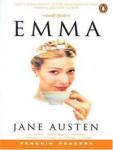
Emma
Jane Austen
Emma Woodhouse, aged 20 at the start of the novel, is a young, beautiful, witty, and privileged woman in Regency England. She lives on the fictional estate of Hartfield in Surrey in the village of Highbury with her elderly widowed father, a hypochondriac who is excessively concerned for the health and safety of his loved ones. Emma's friend and only critic is the gentlemanly George Knightley, her neighbour from the adjacent estate of Donwell, and the brother of her elder sister Isabella's husband, John. As the novel opens, Emma has just attended the wedding of Miss Taylor, her best friend and former governess. Having introduced Miss Taylor to her future husband, Mr. Weston, Emma takes credit for their marriage, and decides that she rather likes matchmaking. Against Mr. Knightley's advice, Emma forges ahead with her new interest, and tries to match her new friend Harriet Smith, a sweet, pretty, but none-too-bright parlour boarder of seventeen —described as "the natural daughter of somebody"— to Mr. Elton, the local vicar. Emma becomes convinced that Mr. Elton's constant attentions are a result of his attraction and growing love for Harriet. But before events can unfold as she plans, Emma must first persuade Harriet to refuse an advantageous marriage proposal. Her suitor is a respectable, educated, and well-spoken young farmer, Robert Martin, but Emma snobbishly decides he isn't good enough for Harriet. Against her own wishes, the easily-influenced Harriet rejects Mr. Martin.
-

Northanger
Jane Austen
Seventeen-year-old Catherine Morland is one of ten children of a country clergyman. Although a tomboy in her childhood, by the age of 17 she is "in training for a heroine" and is excessively fond of reading Gothic novels, among which Ann Radcliffe's Mysteries of Udolpho is a favourite.Catherine is invited by the Allens, her wealthier neighbours in Fullerton, to accompany them to visit the town of Bath and partake in the winter season of balls, theatre and other social delights. Although initially the excitement of Bath is dampened by her lack of acquaintances, she is soon introduced to a clever young gentleman, Henry Tilney, with whom she dances and converses. Much to her disappointment, Catherine does not see Henry again for quite some time. Through Mrs Allen's old school-friend Mrs Thorpe, she meets her daughter Isabella, a vivacious and flirtatious young woman, and quickly becomes friends. Mrs Thorpe's son John is also acquainted with Catherine's older brother, James.James and John soon arrive in Bath. While Isabella and James spend time together, Catherine becomes acquainted with John, a vain and crude young gentleman who incessantly tells fantastical stories about himself. Henry Tilney then returns to Bath, accompanied by his younger sister Eleanor, who is a sweet, elegant, and respectable young lady. Catherine also meets their father, the imposing General Tilney.The Thorpes are not very happy about Catherine's friendship with the Tilneys, as they (correctly as it happens) perceive Henry as a rival for Catherine's affections. Catherine tries to maintain her friendships with both the Thorpes and the Tilneys, though John Thorpe continuously tries to sabotage her relationship with the Tilneys. This leads to several misunderstandings, which upset Catherine and put her in the awkward position of having to explain herself to the Tilneys.Isabella and James become engaged. James's father approves of the match and offers his son a country parson's living of a modest sum, 400 pounds annually, which he may have in two and a half years. The couple must therefore wait until that time to marry. Isabella is dissatisfied, having believed that the Morlands were quite wealthy, but she pretends to Catherine that she is merely dissatisfied that they must wait so long. James departs to purchase a ring, and John accompanies him after coyly suggesting marriage to the oblivious Catherine. Isabella immediately begins to flirt with Captain Tilney, Henry's older brother. Innocent Catherine cannot understand her friend's behavior, but Henry understands all too well, as he knows his brother's character and habits. The flirtation continues even when James returns, much to the latter's embarrassment and distress.The Tilneys invite Catherine to stay with them for a few weeks at their home, Northanger Abbey. Catherine, in accordance with her novel reading, expects the abbey to be exotic and frightening. Henry teases her about this, as it turns out that Northanger Abbey is pleasant and decidedly not Gothic. However, the house includes a mysterious suite of rooms that no one ever enters; Catherine learns that they were Mrs Tilney's, who died nine years earlier. Catherine decides that, since General Tilney does not now seem to be affected by the loss of his wife, he may have murdered her or even imprisoned her in her chamber.Catherine persuades Eleanor to show her Mrs Tilney's rooms, but General Tilney suddenly appears. Catherine flees, sure that she will be punished. Later, Catherine sneaks back to Mrs Tilney's rooms, to discover that her over-active imagination has once again led her astray, as nothing is strange or distressing in the rooms at all. Unfortunately, Henry joins her in the corridor and questions why she is there. He guesses her surmises and inferences, and informs her that his father loved his wife in his own way and was truly upset by her death. "What have you been judging from? Remember the country and the age in which we live. Remember that we are English, that we are Christians. Consult your own understanding, your own sense of the probable, your own observation of what is passing around you. Does our education prepare us for such atrocities? Do our laws connive at them? ... Dearest Miss Morland, what ideas have you been admitting?"[1] She leaves, crying, fearing that she has lost Henry's regard entirely.Realizing how foolish she has been, Catherine comes to believe that, though novels may be delightful, their content does not relate to everyday life. Henry lets her get over her shameful thoughts and actions in her own time and does not mention them to her again.Soon after this adventure, James writes to inform her that he has broken off his engagement to Isabella because of her flirtations with Captain Tilney. The Tilneys are shocked, and Catherine is terribly disappointed, realizing what a dishonest person Isabella is. The General goes off to London, and Eleanor becomes less inhibited and shy away from his imposing presence. Catherine passes several enjoyable days with Henry and Eleanor until he returns abruptly, in a temper. Eleanor tells Catherine that the family has an engagement that prevents Catherine from staying any longer and that she must go home early the next morning, in a shocking, inhospitable move that forces Catherine to undertake the 70 miles (110 km) journey alone.At home, Catherine is listless and unhappy. Her parents, unaware of her trials of the heart, try to bring her up to her usual spirits, with little effect. Two days after she returns home, however, Henry pays a sudden unexpected visit and explains what happened. General Tilney (on the misinformation of John Thorpe) had believed her to be exceedingly rich and therefore a proper match for Henry. In London, General Tilney ran into Thorpe again, who, angry at Catherine's refusal of his half-made proposal of marriage, said instead that she was nearly destitute. Enraged, General Tilney returned home to evict Catherine. When Henry returned to Northanger from Woodston, his father informed him of what had occurred and forbade him to think of Catherine again. When Henry learns how she had been treated, he breaks with his father and tells Catherine he still wants to marry her despite his father's disapproval. Catherine is delighted.Eventually, General Tilney acquiesces, because Eleanor has become engaged to a wealthy and titled man; and he discovers that the Morlands, while not extremely rich, are far from destitute.
-
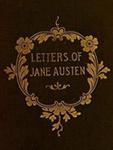
The Letters of Jane Austen
Jane Austen
This edition of Jane Austen's letters was edited by Fanny Knight's son Edward Hugessen Knatchbull-Hugessen (the first Baron Brabourne, lived 1829-1893), and was published in 1884. It's neither complete (about two thirds of the letters now known to have survived are included), nor are the texts of the letters necessarily always transcribed with minute scholarly fidelity, but it's out of copyright, and includes many annotations and quaint comments on the letters. (The latest edition of Jane Austen's letters came out in 1995.)
-
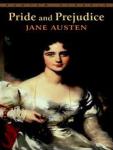
Pride and Prejudice
Jane Austen
The novel centers on the Bennet family, consisting of the bookish Mr Bennet, his wife, a woman somewhat lacking in social graces and primarily concerned with her family's fortunes, and their five daughters. The youngest, Lydia, most takes after Mrs Bennet; the eldest, Jane, is kind-hearted and proper; and the central character, Elizabeth Bennet, is the second-eldest and most takes after her father, sharing his keen wit and occasionally sarcastic outlook.The narrative opens with Mr Bingley's, a wealthy, charismatic and social young bachelor, moving into Netherfield Park in the neighbourhood of the Bennet family. Mr Bingley is soon well received, while his friend Mr Darcy makes a less favorable first impression by appearing proud and condescending at a ball that they attend (he detests dancing and is not much for light conversation). Mr Bingley singles out Jane for particular attention, and it soon becomes apparent that they have formed an attachment to each other, though Jane does not alter her conduct for him, confessing her great happiness only to Lizzie. By contrast, Darcy slights Elizabeth, who overhears and jokes about it despite feeling a budding resentment.On paying a visit to Mr Bingley's sister, Caroline, Jane is caught in a heavy downpour, catches cold, and is forced to stay at Netherfield for several days. Elizabeth arrives to nurse her sister and is thrown into frequent company with Mr Darcy, who begins to act marginally less coldly towards her.Mr Collins, a clergyman, pays a visit to the Bennets. Mr Bennet and Elizabeth are much amused by his obsequious veneration of his employer, the noble Lady Catherine de Bourgh, as well as by his self-important and pedantic nature. It soon becomes apparent that Mr Collins has come to Longbourn to choose a wife from among the Bennet sisters (his cousins) and Elizabeth has been singled out. At the same time, Elizabeth forms an acquaintance with Mr Wickham, a militia officer who claims to have been very seriously mistreated by Mr Darcy, despite having been a ward of Mr Darcy's father. This tale, and Elizabeth's attraction to Mr Wickham, fuels her dislike of Mr Darcy.At a ball given by Mr Bingley at Netherfield, Mr Darcy becomes aware of a general expectation that Mr Bingley and Jane will marry, and the Bennet family, with the exception of Jane and Elizabeth, make a public display of poor manners and decorum. The following morning, Mr Collins proposes marriage to Elizabeth, who refuses him, much to her mother's distress. Mr Collins recovers and promptly becomes engaged to Elizabeth's close friend Charlotte, a homely woman with few prospects. Mr Bingley abruptly quits Netherfield and returns to London, devastating Jane, and Elizabeth becomes convinced that Mr Darcy and Caroline Bingley have colluded to separate him from Jane.In the spring, Elizabeth visits Charlotte and Mr Collins in Kent. Elizabeth and her hosts are frequently invited to Rosings Park, home of Lady Catherine de Bourgh, Darcy's aunt; coincidentally, Darcy also arrives to visit. Elizabeth meets Darcy's cousin, Colonel Fitzwilliam, who vouches for Darcy's loyalty, using as an example how Darcy had recently stepped in on behalf of a friend, who had formed an attachment to a woman against whom "there were some very strong objections." Elizabeth is astonished to discover that said friend was none other than Mr Bingley, and her dislike of Darcy hardens further. Thus she is of no mood to accept when Darcy arrives and, quite unexpectedly, confesses love for her and begs her hand in marriage. Elizabeth rebukes him, and a heated discussion follows; she charges him with destroying her sister's happiness, with treating Mr Wickham disgracefully, and with having conducted himself towards her in an arrogant, ungentleman-like manner. Mr Darcy, shocked, ultimately responds with a letter giving a good account of (most of) his actions: Wickham had exchanged his legacies for a cash payment, only to return after gambling away the money to reclaim the forfeited inheritance; he then attempted to elope with Darcy's young sister Georgiana, thereby to capture her fortune. Regarding Jane, Darcy claims he had observed no reciprocal interest in Jane for Bingley, and had assumed her not to be in love with him. In addition to this, he cites the "want of propriety" in the behaviour of Mrs Bennet and her three younger daughters. Elizabeth, who had previously despaired over these very behaviors, is forced to admit the truth of Mr Darcy's observations, and begins to wonder whether she has misjudged him.Some months later, Elizabeth and her Aunt and Uncle Gardiner visit Pemberley, Darcy's estate, believing he will be absent for the day. He returns unexpectedly, and though surprised, he is gracious and welcoming. He treats the Gardiners with great civility. Darcy introduces Elizabeth to his sister, and Elizabeth begins to realize her attraction to him. Their reacquaintance is cut short, however, by the news that Lydia has run away with Mr Wickham. Elizabeth and the Gardiners return to Longbourn, where Elizabeth grieves that her renewed acquaintance with Mr Darcy will end as a result of her sister's disgrace.Lydia and Wickham are soon found, then married by the clergy; they visit Longbourn, where Lydia lets slip that Mr Darcy was in attendance at her wedding but that this was to have been a secret. Elizabeth is able to discover, from her Aunt Mrs. Gardiner, that in fact Mr. Darcy was responsible for finding the couple and negotiating their marriage, at great personal and monetary expense. Elizabeth is shocked but is unable to dwell further on the topic due to Mr Bingley's return and subsequent proposal to Jane, who immediately accepts.Lady Catherine de Bourgh later bursts in on Longbourn; intending to thwart local rumour, she warns Elizabeth against marrying Mr Darcy. Elizabeth refuses her demands. Disgusted, Lady Catherine leaves and drops by to inform her nephew on Elizabeth's abominable behaviour. However, this lends hope to Darcy that Elizabeth's opinion of him may have changed. He travels to Longbourn and proposes again, and this time, his pride and her prejudice done away with, Elizabeth accepts.